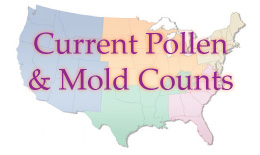Insect Allergies
Most people have some reaction to insect stings, but some have more severe allergic reactions to the insect’s venom. Bee, wasp, yellow jacket, hornet, or fire ant stings are the venom-containing stings that most often trigger allergies.
The severity of an insect sting reaction varies from person to person. A normal reaction results in pain, swelling, and redness around the sting site. A large local reaction results in swelling that extends beyond the sting site. This kind of reaction is typically no more serious than a normal reaction. For a small number of people with venom allergy, stings may be life-threatening. This reaction is called anaphylaxis. Symptoms may include two or more of the following: itching and hives, swelling in the throat or tongue, difficulty breathing, dizziness, stomach cramps, nausea or diarrhea. In severe cases, a rapid fall in blood pressure may result in shock and loss of consciousness.
Treating Insect Stings
The best treatment for insect stings is to avoid the stinging insects. Do not disturb insect hives and be cautions outdoors by not wearing bright colors, perfumes, etc in areas where stinging insects may reside. Many insects are attracted to sweet to foods and sweet beverages, so exercise caution at picnics and barbecues.
If stung and the insect left its stinger in your skin, quickly remove the stinger to avoid receiving more venom. A quick scrape of your fingernail removes the stinger and sac. Avoid squeezing the sac – this forces more venom through the stinger and into your skin. For all stinging insects, try to remain calm and brush these insects from the skin. Then immediately leave the area.
These steps can help in treating local reactions to insect stings:
- Raise the affected limb and apply a cold compress to reduce swelling and pain.
- Gently clean area with soap and water to prevent secondary infections; do not break blisters.
- Use topical steroid ointments or oral antihistamines to relieve itching.
- See your physician if swelling progresses or if the sting site seems infected.
If you are severely insect-allergic, carry auto-injectable epinephrine. Learn how and when to self-administer the epinephrine, and replace the device before the labeled expiration date. Dr. Fleekop can assist with this training.

